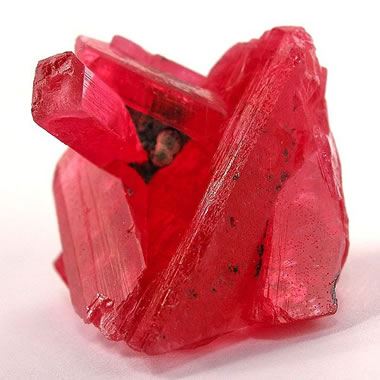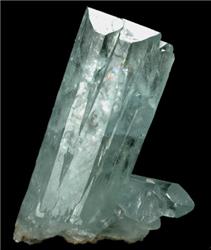Definition of solution:
A liquid mixture, when something is dissolved into a liquid (eg: sugar in water)
Definition of saturated:
Having or holding as much as can be absorbed of something (when no more sugar or borax can be dissolved into the water)
In groups of three you will make three different types of crystals and compare the results.

Ratio; 3 Tablespoons Borax per 1/2 cup water
Materials
1) Pipe Cleaner
2)String
3)Pegs
4) Cups
5) Borax
6) Sugar
7) Salt
Process
Step 1: Shape the Pipe cleaners into star shape.
Step 2: Hang star on a peg.
Step 3:Make up borax solution.
Step 4:Label your cup
Step 5:
Step 6:
Sugar Crystals
Materials
1) Pipe Cleaner
2)String
3)Pegs
4) Cups
5) Borax
6) Sugar
7) Salt
Process
Step 1: Shape the Pipe cleaners into star shape.
Step 2: Hang star on a peg.
Step 3:Make up borax solution.
Step 4:Label your cup
Step 5:
Step 6:

Ratio: 4 Tablespoons salt to 1/2 cup water
Materials
1) Pipe Cleaner
2)String
3)Pegs
4) Cups
5) Borax
6) Sugar
7) Salt
Process
Step 1: Shape the Pipe cleaners into star shape.
Step 2: Hang star on a peg.
Step 3:Make up borax solution.
Step 4:Label your cup
Step 5: Hang star into borax
Step 6:
Findings
Describe your crystals in the table below.
Crystal Type
|
Shape
(Describe the shape) |
Size
(of individual crystals) |
Hardness
(Crumbly to Rock Hard) |
Borax
| |||
Sugar
| |||
Salt
|
What crystals worked out best and why?:
Conclusion:
________________________________________________________________________
Conclusion:
________________________________________________________________________
After watching the videos as a class, explain how the following crystals are formed:
Type
|
Explanation
|
Salt
|
It is typically formed by the evaporation of salty water (such as sea water) which contains dissolved Na+ and Cl- ions. One finds rock salt deposits ringing dry lake beds, inland marginal seas, and enclosed bays and estuaries in arid regions of the world.
|
Sugar
|
As the water evaporates, the solution becomes more saturated and sugar molecules will continue to come out of the solution and collect on the seed crystals on the string. The rock candy crystals grow molecule by molecule.
|
Snowflakes
|
A snowflake begins to form when an extremely cold water droplet freezes onto a pollen or dust particle in the sky. This creates an ice crystal. As the ice crystal falls to the ground, water vapor freezes onto the primary crystal, building new crystals – the six arms of the snowflake.
|
CRYSTAL TYPES
AIM: TO LOOK AT THE 7 DIFFERENT TYPES OF CRYSTALS
| Salt Crystals |
| Sugar Crystals |
| Borax Crystals |
7 different crystal shapes
The 7 types of crystals
Type
|
Number of sides
|
2 examples
|
Image
|
Triclinic
| 7 | Turquoise Rhodonite |  |
Monoclinic
| 7 | three axes unequal lengths |  |
Orthombic
| 7 | of or denoting a crystal system or three-dimensional geometrical arrangement having three unequal axes at right angles. |  |
Trigonal
| 7 | of or denoting a crystal system or three-dimensional geometrical arrangement having three equal axes separated by equal angles that are not right angles. | |
Hexagonal
| 7 | of or denoting a crystal system or three-dimensional geometrical arrangement having three axes of equal length separated by 60° and a fourth axis of a different length at right angles to these | |
Cubic
| 7 | A cube has six equal, square-shaped sides. Cubes also have eight vertices (corners) and twelve edges, all the same length. The angles in a cube are all right angles. Objects that are cube-shaped include building blocks and dice. | |
Tetragonal
| 7 | In crystallography, the tetragonal crystal system is one of the 7 crystal systems. Tetragonal crystal lattices result from stretching a cubic lattice along one of its lattice vectors, so that the cube becomes a rectangular prism with a square base (a by a) and height (c, which is different from a). |


No comments:
Post a Comment
Comments
Please structure your comments as follows:
Positive - Something done well
Thoughtful - A sentence to let us know you actually read/watched or listened to what they had to say
Helpful - Give some ideas for next time or Ask a question you want to know more about